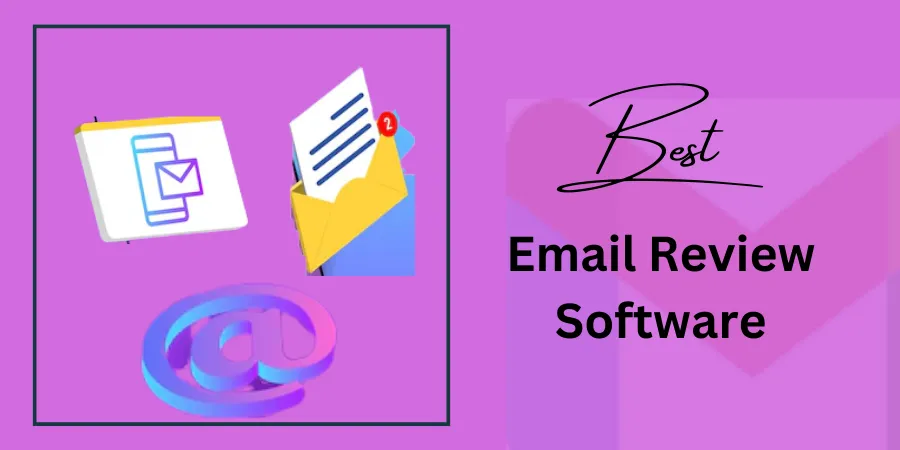3+ Best Email Review Software [Reviewed and Ranked]
Email review software is a valuable tool for businesses, organizations, and individuals who need to manage and review large volumes of emails.
It can help you stay organized, reduce the risk of missed or forgotten emails, and improve the efficiency of your email workflow.
In this guide, we will review some of the best email review software available on the market, including their features, benefits, pros and cons, and how to get started with each one.
What Is The Best Email Review Software?
Here are my top picks of the best email review software.
1. Boomerang
Boomerang is a popular email review software that is available as an extension for Google Chrome and Firefox.
It allows you to schedule emails to be sent at a later date, set reminders for yourself, and track the status of your emails.
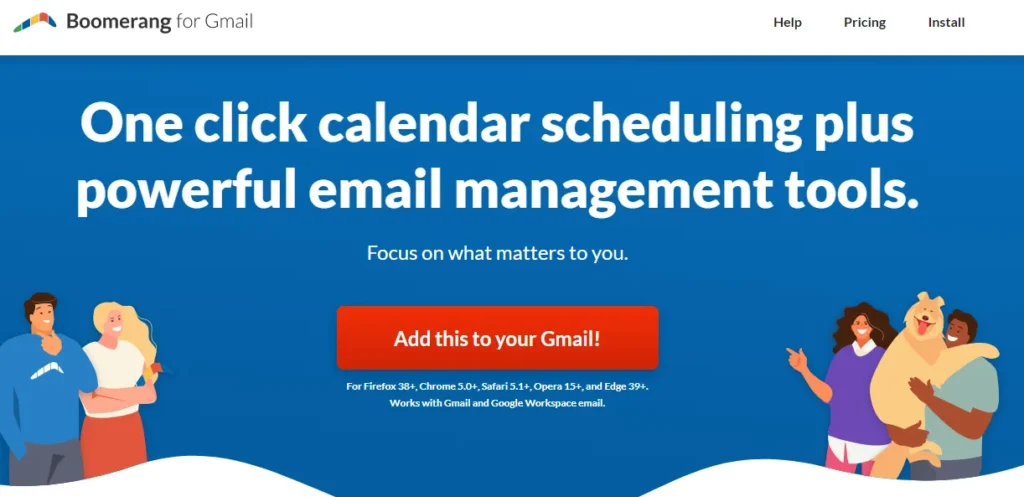
Boomerang also offers a feature called “Response Tracking,” which lets you know when someone has opened your email or clicked on a link within it.
Benefits
- Schedule emails to be sent at a later time, ensuring that you are sending emails at the most optimal times.
- Set reminders for yourself, so you don’t forget to follow up on important emails.
- Track the status of your emails, so you know when they have been opened or clicked on.
- Works with Gmail, Outlook, and Office 365.
Pros
- Easy to use and set up.
- Integrates seamlessly with popular email clients.
- Affordable pricing plans.
Cons
- Some users may find the interface cluttered and overwhelming.
- Some features, such as the “Response Tracking” feature, require a paid subscription.
How to get started
To get started with Boomerang, you will need to install the extension on your web browser and sign up for an account. Once you have done this, you will be able to access all of Boomerang’s features from within your email client.
2. SaneBox
SaneBox is another popular email review software that helps you manage your inbox by prioritizing important emails and filtering out unimportant ones.
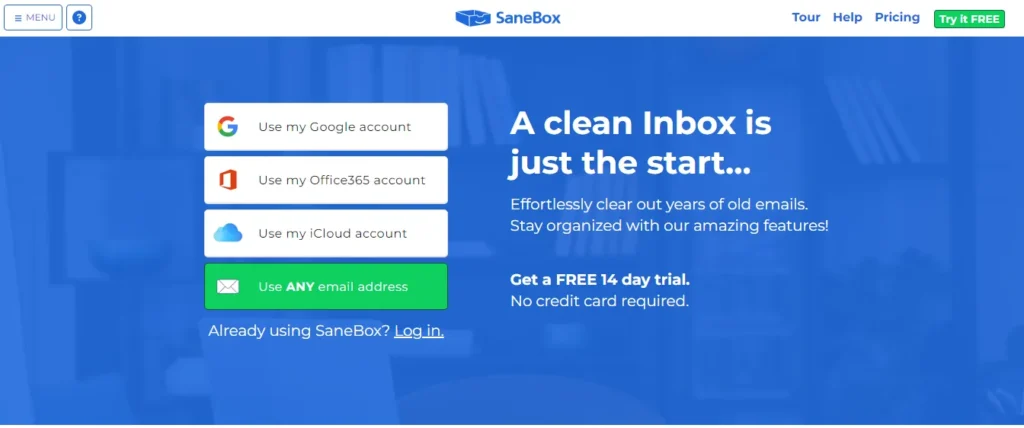
It also offers a number of other useful features, such as the ability to schedule emails to be sent at a later time, set reminders for yourself, and track the status of your emails.
Benefits
- Prioritize important emails, so you can focus on the most important tasks first.
- Filter out unimportant emails, so you don’t get overwhelmed by a cluttered inbox.
- Schedule emails to be sent at a later time, ensuring that you are sending emails at the most optimal times.
- Set reminders for yourself, so you don’t forget to follow up on important emails.
- Track the status of your emails, so you know when they have been opened or clicked on.
- Works with Gmail, Outlook, and Office 365.
Pros
- Easy to use and set up.
- Integrates seamlessly with popular email clients.
- Affordable pricing plans.
Cons
- Some users may find the interface cluttered and overwhelming.
- Some features, such as the “Response Tracking” feature, require a paid subscription.
How to get started
To get started with SaneBox, you will need to sign up for an account and install the extension on your web browser. Once you have done this, you will be able to access all of SaneBox’s features from within your email client.
3. Grammarly
Grammarly is a popular writing tool that also offers an email review feature.
It helps you write better emails by checking for grammar, spelling, and punctuation errors and suggesting improvements.
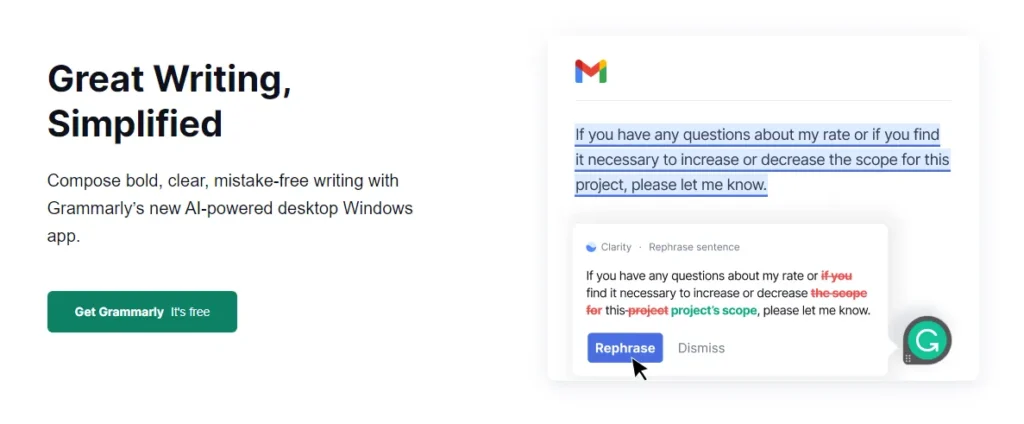
It also offers a number of other writing and editing tools, such as a plagiarism checker and a tone detector.
Benefits
- Improve the quality of your emails by catching grammar, spelling, and punctuation errors.
- Suggest improvements to your writing, such as alternative words or phrases.
- Check for plagiarism to ensure that your emails are original and unique.
- Detect the tone of your emails and suggest changes to make them more appropriate for the recipient.
- Works with Gmail, Outlook, and other email clients.
Pros
- Easy to use and set up.
- Integrates seamlessly with popular email clients.
- Offers a wide range of writing and editing tools.
Cons
- Some users may find the interface cluttered and overwhelming.
- Some features, such as the plagiarism checker, require a paid subscription.
How to get started
To get started with Grammarly, you will need to sign up for an account and install the extension on your web browser. Once you have done this, you will be able to access all of Grammarly’s email review and writing tools from within your email client.
4. Clearbit Connect
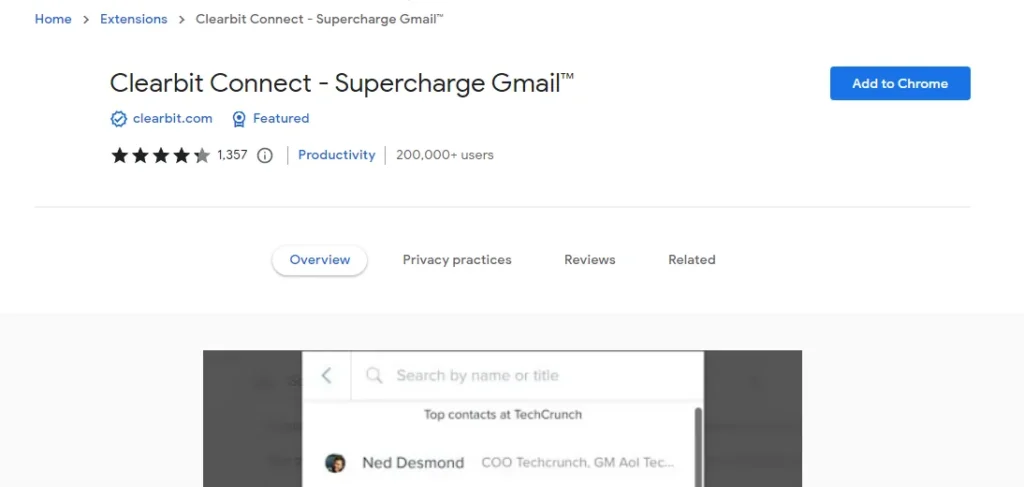
Clearbit Connect is an email review software that helps you find and connect with the right people within an organization.
It does this by searching for email addresses and other contact information for specific individuals or companies.
Clearbit Connect also offers a number of other useful features, such as the ability to track email opens and clicks and schedule emails to be sent at a later time.
Benefits
- Find and connect with the right people within an organization.
- Search for email addresses and other contact information for specific individuals or companies.
- Track email opens and clicks to see how effective your emails are.
- Schedule emails to be sent at a later time, ensuring that you are sending emails at the most optimal times.
- Works with Gmail, Outlook, and other email clients.
Pros
- Easy to use and set up.
- Integrates seamlessly with popular email clients.
- Offers a wide range of features for finding and connecting with the right people.
Cons
- Some users may find the interface cluttered and overwhelming.
- Some features, such as the email tracking feature, require a paid subscription.
How to get started
To get started with Clearbit Connect, you will need to sign up for an account and install the extension on your web browser. Once you have done this, you will be able to access all of Clearbit Connect’s features from within your email client.
Frequently Asked Questions
Email review software can be a valuable tool for businesses, organizations, and individuals who need to manage and review large volumes of emails.
It can help you stay organized, reduce the risk of missed or forgotten emails, and improve the efficiency of your email workflow. However, it is important to choose the right email review software for your needs and budget.
The best email review software will depend on your specific needs and preferences. Some popular options include Boomerang, SaneBox, Grammarly, and Clearbit Connect.
It is recommended to research and compare different email review software to find the one that best meets your needs.
To get started with email review software, you will need to sign up for an account and install the extension on your web browser. Once you have done this, you will be able to access all of the email review software’s features from within your email client. Most email review software offers easy-to-follow instructions and tutorials to help you get started and make the most of their features.
Yes, some email review software offers free plans or trials. However, these free plans may have limited features or only be available for a short period of time.
It is important to carefully read and compare the features and pricing of different email review software to determine which one is the best fit for your needs.
Conclusion
Email review software can be a valuable tool for managing and reviewing large volumes of emails.
It can help you stay organized, reduce the risk of missed or forgotten emails, and improve the efficiency of your email workflow.
In this guide, we have reviewed some of the best email review software available on the market, including Boomerang, SaneBox, Grammarly, and Clearbit Connect.
Each of these software offers unique features and benefits, and it is important to carefully research and compare them to determine which one is the best fit for your needs.

